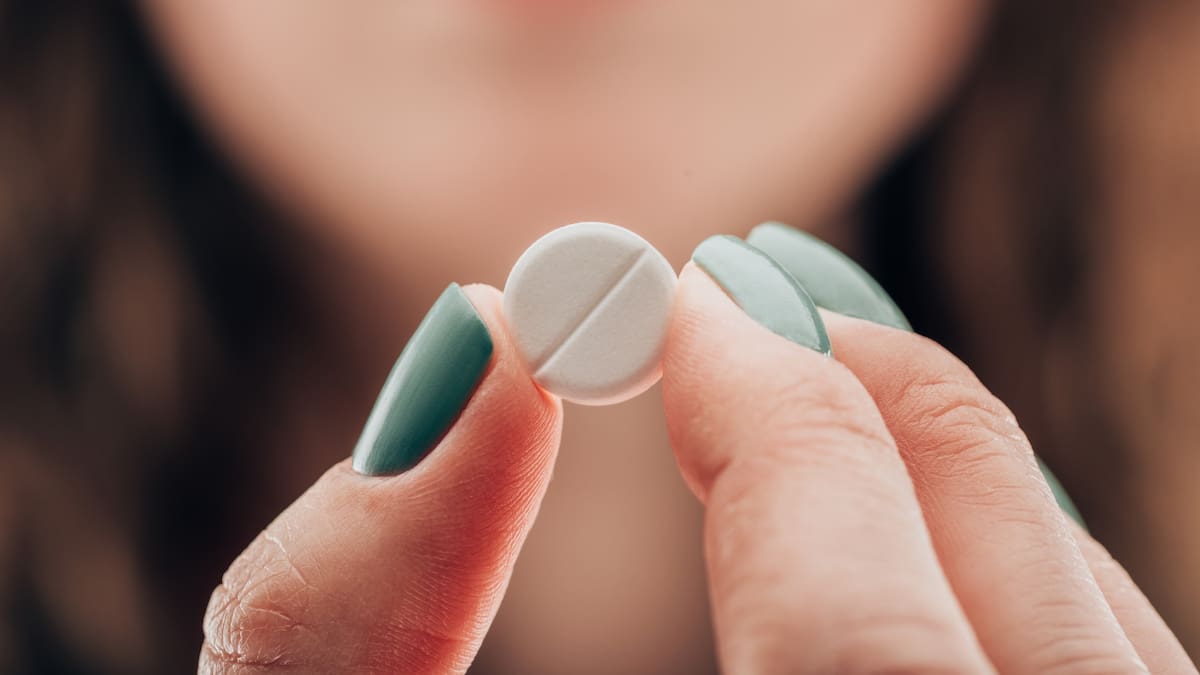I don’t get too concerned if my patients take one or two doses every now and then. But through regular use, such as several times a month or more, NSAIDs are well-known to increase intestinal permeability. In other words, NSAIDs can damage the lining of our guts.
That’s because NSAIDs reduce the blood flow in the tiny vessels feeding our guts and disrupt the intestinal cells forming a barrier between the outside world and your insides. This has been proven over and over again through decades of research.
So what should you do instead?
Many people live with conditions like migraines, chronic back pain or bad period cramps and take NSAIDs on a regular basis to treat their symptoms. If that’s you, I’d advise you have a chat with your physician and explore NSAID alternatives. Because NSAIDs do work well – and are cheap and over-the-counter – you may have never felt the need to discuss what else to try instead.
Personally, I’d rather reach for acetaminophen (known as paracetamol in New Zealand) when I can.
But if you do need to take an NSAID, here’s my tip: Take it right at the start of your symptoms. These drugs can do a far better job stopping things at the source than they can chasing after all the prostaglandins that will get released into the body after things blow up. In this way, you can actually take fewer NSAIDs overall.
Are you taking more pills than you should?
Many NSAIDs are available over the counter, which means people are making medical decisions about them without the guidance of a physician. And especially when you’re in acute pain from an aching tooth or back, believe me, it’s too easy and too common to get carried away.
A 2018 study found that 15% of adult ibuprofen users in the United States exceed the maximum recommended daily dose. The same study found that more than a third of ibuprofen users were taking other NSAIDs – like aspirin or naproxen – at the same time as ibuprofen, but perhaps more disturbingly, the majority of users – 61% – did not realise that all the products they were using were NSAIDs in the first place.
As a gastroenterologist, I often hear a similar story: People started taking two pills at a time instead of one to help take the edge off their pain. Or the first dose didn’t help quickly enough, so they took another soon afterward without waiting the recommended interval. And then another and then another.
That’s where I come in: I’ve rushed to the hospital in the middle of the night far more times than I can count to perform an emergency endoscopy on someone who was bleeding profusely from an ulcer caused by NSAIDs. As many as one in four chronic NSAID users will get an ulcer and about 4% will bleed or rupture through the gut wall.
So while medications like proton pump inhibitors have thankfully revolutionised ulcer healing, given that at least 30 million people use NSAIDs each day in the United States, that rate of complications should make anyone pause.

The link between gut issues and NSAIDs
Studies have found that as many as 75% of people regularly using NSAIDs develop low-grade inflammation in their small bowels. This can have numerous health consequences – beyond just vague daily abdominal pain – that can be hard to quantify. NSAIDs have been linked to the development of fatty liver disease: The idea is that as your gut lining becomes more permeable, more toxins and bacteria from the outside world reach your liver, leading to inflammation. And as many as 6% of people taking NSAIDs regularly also find that their blood counts drop within a few months – suggesting that they cause a small, slow amount of bleeding in the gut over time.
With all this data, it’s no surprise to me that NSAIDs are also implicated in other GI conditions such as diverticulitis, chronic diarrhoea and inflammatory bowel disease.
I’d be remiss if I didn’t mention that NSAIDs disrupt blood flow to the kidneys. Between high blood pressure and diabetes, many people already have several risk factors driving their kidneys toward early failure. In patients 65 and older, NSAIDs unnecessarily double that likelihood within 30 days of starting to take them.
What I want my patients to know
Aspirin is a special kind of NSAID that is especially effective at preventing your platelets from lumping together and clotting. There are several conditions in which a low-dose daily aspirin might help reduce the risk of diseases – most notably, it can lower your odds of a repeat heart attack or stroke if you’ve already had one.
But because of the other risks linked to NSAIDs, the United States Preventive Services Task Force updated their guidelines in 2022 to advise against starting a low-dose aspirin if you’ve never had heart disease. And a major 2023 study found that older adults taking low-dose daily aspirin had a nearly 40% increased risk of head bleeds and didn’t actually have fewer ischemic strokes than those who were not taking low-dose aspirin.
If you’re taking aspirin or another blood thinner, think twice before reaching for ibuprofen. The risk of a bad outcome may be greatest when you combine the two.
– Additional reporting by NZ Herald






